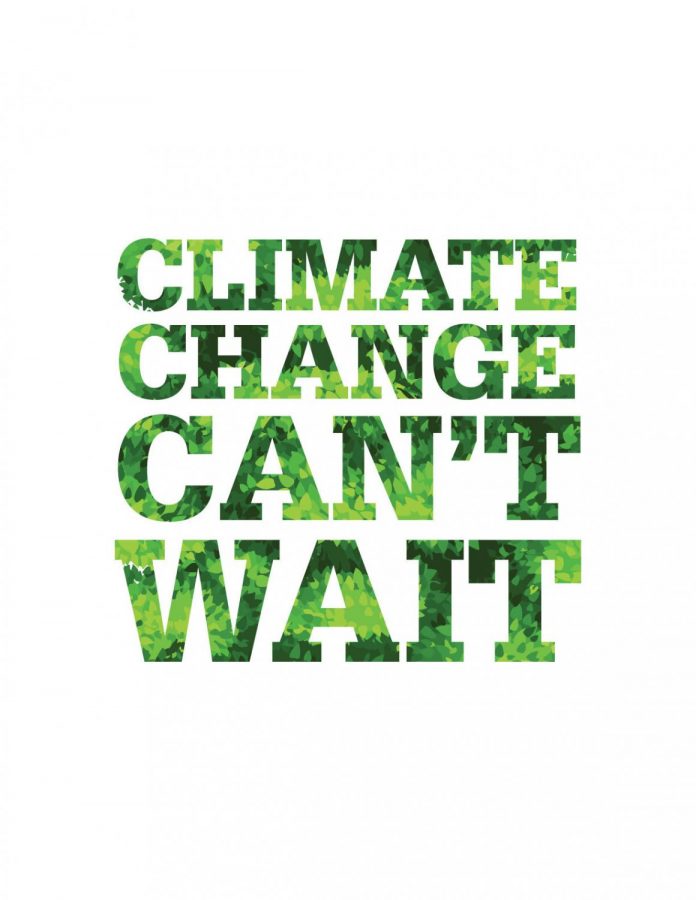Buening: First-World Privilege Hinders Climate Action
July 30, 2021
Climate catastrophe media headlines are familiar. Whether it is an oil spill or yet another record-breaking wildfire season, watching the climate crisis unravel has become routine.
From my air-conditioned, running water-equipped apartment in Utah, I’m sheltered from the extreme drought that exists right outside my window. My privilege allows me to remain largely unaffected by climate disasters, but others are not so lucky.
The position I and other advantaged groups occupy makes it easy to disassociate from these disasters, though we have been the biggest contributors. Our disassociation has contributed to climate change’s rapid acceleration and has devalued the experiences of front-line communities — an oversight that leads to environmental injustice and inaction.
First-world countries cannot disassociate any longer.
First-World Spiraling from Climate Consequences
Climate news is packed with mentions of new, increasingly common environmental calamities. One billion sea creatures died along Vancouver’s coast due to an intense heat wave. Siberia’s tundra is thawing and breaking out in wildfire due to rising temperatures. Heavy flooding in New York City caused subway stations and roads to close. Utah’s drought leads to wildfires, poor air quality, the depreciation of the Great Salt Lake and water shortages.
These crises have gained so much attention because of their proximity to or involvement with “more valued” communities. It is outrageous that urgent climate concern only grows when disaster strikes too close to home — and sometimes not even then. Only when climate change begins to affect those in power does the public seem to pay attention.
For instance, Gov. Spencer Cox has had to plead with Utahns to use less water amid the drought so that more can be conserved for agriculture. Despite this constant urging, farmers are expected to shoulder most of the burden, cutting their water usage down 70-75% compared to last year. Meanwhile, the same sacrifice isn’t made by average households, who still apply 60% of their residential water supply outdoors.
For those of us that can hide from air quality and water shortage concerns within the comfort of our homes, perhaps we’ll concern ourselves with climate consequences now that boat ramps are closing from low water levels. Regardless, as climate consequences begin to catch up to the world’s greatest polluters, we’re seeing panic rise from the demographics that previously pushed away environmental issues.
Environmental Racism in Full Effect
While these trending climate disasters may seem like the beginning of climate change’s most severe results, they are only a continuation. For underprivileged communities, these events are no surprise.
In 2018, U.S. EPA scientists concluded that poverty-stricken individuals shouldered a 35% greater climate-induced health burden than the overall population. Non-whites experienced a 28% higher burden, with African Americans specifically suffering 54% more than average. Black Americans are also 75% more likely to live in close proximity to oil and gas facilities.
Indigenous peoples have already been facing the direct consequences of climate change. In Utah, where we’ve been experiencing severe drought, Indigenous reservations already struggle to access clean water. Many of their homes don’t have on-the-grid energy, cooling systems or running water available to them.
Because of their close relationship with and reliance on the earth, Indigenous communities all over the world are more susceptible to climate change. Adding insult to injury, industries take advantage of these communities by establishing oil pipelines and polluting plants on their lands. In Africa’s Kalahari Desert and Brazil’s Amazon Rainforest, Indigenous people have to deal with vegetation losses thanks to government-enforced drilling and deforestation.
In our news, we don’t often hear about the ongoing environmental injuries outside communities experience, such as drought-induced starvation in Madagascar or floods in Chad. When we do, they quickly fade to the background. It’s become normalized to view disaster and unrest in these places as inherent. We aren’t surprised anymore, and frankly don’t care enough to do anything about it. But why would we care when we profit off of their burden?
Accountability for Catastrophes
First-world industry has managed to divert the vast majority of environmental degradation’s negative impacts onto poorer communities. We shift emission sources to countries with weaker environmental regulations. In 2019, the United States shipped 88,000 containers of plastic waste to countries with poor waste management. Thanks to a plastic waste import ban from India in August of 2019, that number was actually a decrease from the year before. Despite our position as a polluting superpower, we aren’t holding ourselves accountable.
The privileges we enjoy as first-world citizens should not be contingent upon the disadvantages of other communities or countries. Yet, that’s precisely the system we are operating within. Global inequality has steadily grown, and countries exploited by imperialism continue to be disproportionately impacted by the climate crisis. Wealthier nations are to blame for the vast majority of greenhouse gas emissions that cause these disastrous events, so we need to claim responsibility.
It’s time to examine our privilege. The climate crisis is barreling ahead, disparaging front-line communities along the way. We need to approach these disasters with the urgency they deserve, rather than hold on to the privileged ideals that created the problem. This includes increasing the pressure we place on our representatives to take climate action and working harder to not brush aside news of climate disasters that don’t directly impact us.
Our earth and impacted people cannot afford for us to maintain selfish priorities.








